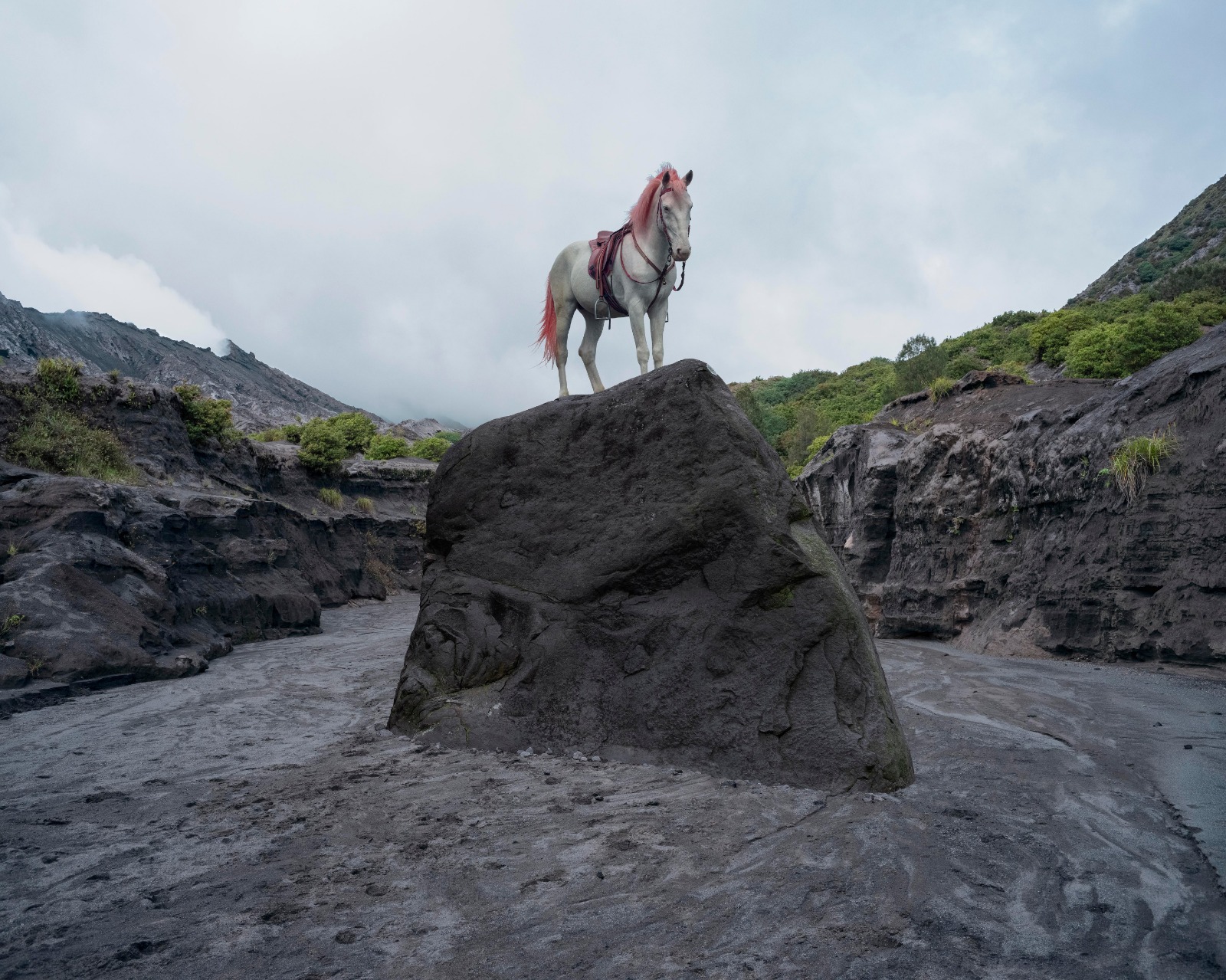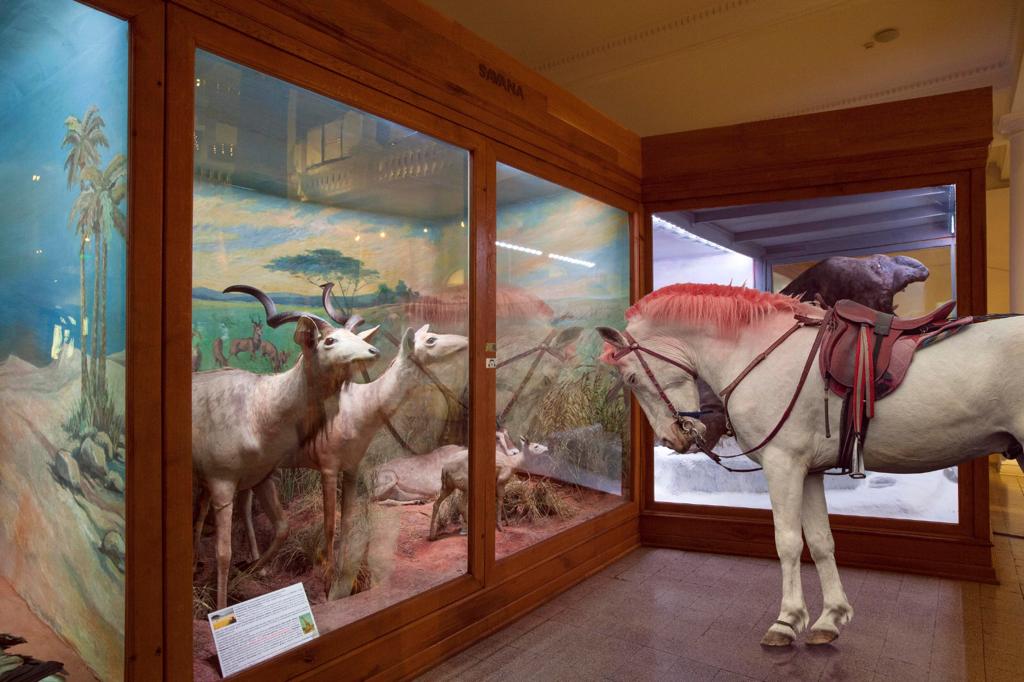An Invitation to Put Yourself in My Shoes
— Adelina Luft

To my fellow earth beings.
I am climbing a steep hill in a village somewhere in Eastern Europe, pushing a carriage full of hay collected by a family of humans to feed me and others of my species. As I climb, I feel the heat piercing my skin and my hooves step on a land drier than I remember. Summers are getting hotter and draughts start to take a toll on the villagers, our pastures, food supplies and entire ecosystem. I realize I am no longer disturbed by the swarm of bees that once orbited around me. Their population has been declining due to your harmful farming, neglect, and refusal to acknowledge we depend on them for our survival. There are only a few of us left in the village – nearly no cattle or bovines in sight, except for a herd of sheep following one of the last shepherds. I have heard there are others like us somewhere near, in places with high fences; bred and raised nameless in industrial graveyards to feed the greedy masses with promises of prosperity and abundance. (…) Humans are scarce too. They have migrated to the metropolitan centers of the adjoining regions, as well as hundreds of kilometers towards the West, while many elders and children are left behind unattended.

I, myself, was given a name, a family, and a shelter where I can graze freely in the fields that have not yet been privatized and marketed by foreign investors. The grazing in solitude – a privileged act – is a time to reflect, question, and think about the present times I was born in and the past of my ancestors. I am, somehow, deeply connected to these lands – right here, in the Eurasian Steppe which stretches from what is nowadays the frontiers of Hungary, Romania, and Ukraine, you have first domesticated my species 6000 years ago. This moment has changed your entire human culture, warfare, and transportation, only to benefit the expansion of your own species. We offered you unconditional companionship and means of survival in times of poverty, war, and revolution, while you made us take sides, of the winners or the defeated, turning us complicit to your schemes of conquest and advancement. You have turned us into an extension of your earthly bodies, building up your own history by colonizing ours, monumentalizing your heroes on statues where we were rendered anonymous, and mythologizing our existence to speak about heroism, wisdom, and transcendence to unseen worlds. Our interdependencies have turned us into almost-humans who speak in languages you preferred not to decipher. And how we can write our own histories now? Can we reverse the coin to speak as equals, as part of the same natureculture you have so keenly tried to divide?
In the habitat you have created for us, we now act as mere vehicles – to carry, transport, compete, or to provide some sort of entertainment. Others continue to cut our skins to feed off the meat. You have always decided on behalf of others how the multiplicities of life forms should exist, employed to support your own plans of progress. I have been thinking about the beginnings of your drive for exploitation and how that made us perceive it as the natural course of things. Exploitation is, however, not discriminatory – it involves others of you, nonhumans, and earth alike, and builds on the postulates of progress which brings with it excess, insatiability, and distractions you now bury yourself in. How much you have forgotten that your existence on these lands is not to own them but to play an equal part, in the middle and not above us, the others, the living organisms, the wind, the sky, the birds, the sun. Reflecting on the history of my species is also understanding a lot about yours.
Reclaiming the agency of our species is not to resuscitate any linearity or a teleological understanding of how my white ancestors traveled across time and space, nor am I interested in adjoining in a world where only one world fits. My presence is ubiquitous. As an almost-human, I have been subjected to the formation of your cultures, religions, territories, and knowledges across all regions of the world, deified for what humans considered to be a creature with capabilities of transcending the normal world. Records of our servitude are found on ancient rocks, folktales, depictions of biblical anecdotes, popular culture, contemporary artworks. Regardless of my gender, I am ubiquitous across time and space, a complicit witness to your histories, a fetishized symbol of your desires.

Yet, I am becoming obsolete. My experience of temporality has shifted from that of my predecessors. Since you have become a major force determining the continuity of livability on earth, the environment has been changing faster than your societies. Scholars named these times the Anthropocene to assert your dominant place in nature which you continuously alter for profits and for your own sake. Science and new technologies have become your religion which have replaced the possibilities to imagine a multitude of worlds on earth in relationality. The only certainty we have now is ruination of our ecosystems, from which your species make no exception.
My fellow earth beings, centuries ago you have invested us with the power to foretell the future, awaiting the world savior on a chariot to save us at the end of times. Yet, the future of our present is not only unforeseeable, but also impassable. We are losing the ground under our feet and the imagination to form a world otherwise.
Will I still be here to save you at the end of times?
Aurora,
The White Horse
